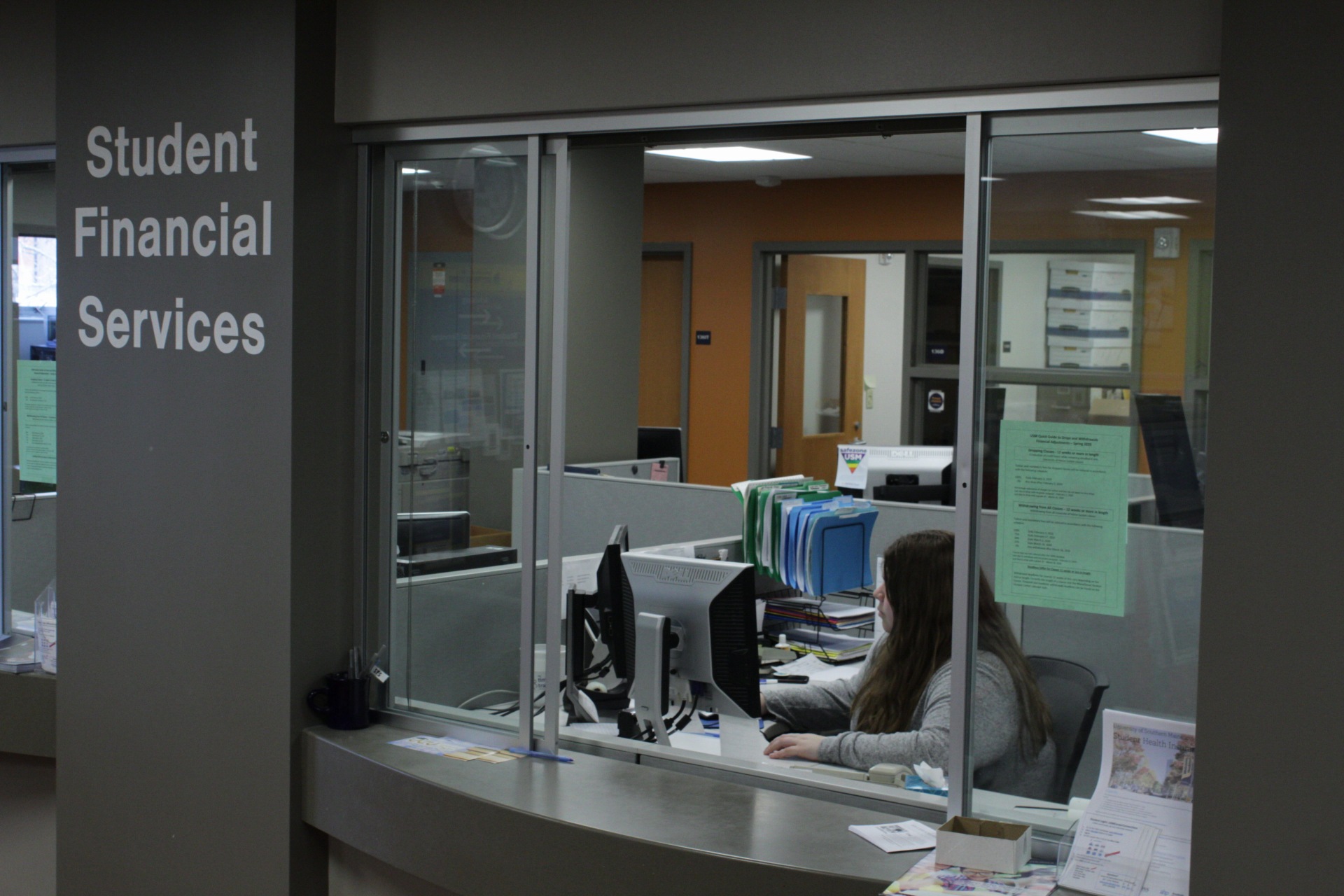By: Emma J. Walsh, Staff Writer
Roughly 85% of full time undergraduate students at USM receive financial aid, according to Jami Jandreau, Director of Financial Aid at USM.
According to Jandreau, for the 2019-2020 school year, the university processed over 8,900 financial aid awards. This is an increase from the 2018-2019 school year in which they processed over 8,500 awards. These awards can be for the full school year or for one semester.
In 2019, the average amount of debt USM undergraduate students had at the time of graduation was $23,713. This number was calculated, “by summing all student loans including federal and private loans borrowed while enrolled at USM and does not include Federal Parent Plus Loans,” Jandreau says.
Jandreau states, “This average debt figure is down considerably since 2015, when the average debt for graduating undergraduates was $28,238. We anticipate that the average debt for undergraduates will continue to decline as USM fully implements a significant investment in merit scholarship and need-based financial aid programs.”
Jandreau says that there has been an increase in the investment in students due to the rise in donor scholarship funding provided by the USM Foundation. According to the USM website, the USM Foundation is a “catalyst for transformation…an independent, nonprofit organization, [that] supports the aspirations of our students and the strategic vision of USM.”
The main type of financial aid students receive is a loan. There are different types of loans, which include federal subsidized direct loan, federal unsubsidized direct loan, federal direct plus loans, among others. Loans are a type of financial aid that need to be repaid.
In addition to loans, USM offers federal work study, scholarships, and grants. According to the USM website, “Work study is an excellent way to offset the cost of tuition while also developing career skills. Work-study funds are earned through part-time on-campus work and don’t have to be repaid.”
Scholarships are made available to students through the generosity of alumni, the business community, and financial investments. Scholarships do not have to be repaid. There are scholarships that are available to almost all students, and others by special interest, such as the ROCC program, study abroad, and the Maine State Ballet. Other scholarship types include faculty nominated scholarships, the Promise Scholarship, University of Maine System Affiliation Scholarships, and external scholarships.
USM also offers grants, which are free money given to students to help reduce the amount of debt students acquire. According to the USM website, grants that are funded by the university or government are given to students who demonstrate a financial need, are not dependent on academic standing, and they do not need to be repaid.
In order to maintain eligibility for financial aid, students should try to avoid withdrawing from or repeating a course, and make sufficient academic progress during their college career.
The USM website has additional resources and tips for students. The main resource is iGrad, a financial literacy website. Other helpful tips the USM website mentions include sourcing a scholarship, internship, or job, getting help with student loans, saving money, and taking control of your money. Students can also consult their financial aid advisor with any questions regarding financial aid.

